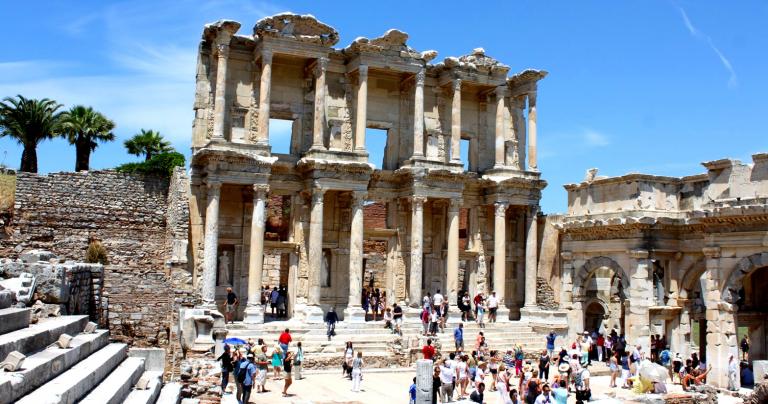This is a Pagan blog, written by a Pagan for a Pagan audience. My days of responding to every ludicrous statement by fundamentalists are long gone, largely because my inner fundamentalist is dead. My primary concern is exploring my particular form of Paganism as deeply as I can. Responding to proselytizers is a distraction from that concern.
Lately I’ve been frustrated with more than the usual number of Christians and atheists leaving aggressive comments here and on social media. That led to Sunday’s Letter To Those Who Would Convert Me. My intent was for that to be the last word so I could get back to the business at hand.
Still, I try to respond when Christians and atheists ask questions. Sometimes their questions inspire me to think in a direction I hadn’t considered, even if I don’t end up in the same place they’re trying to lead me. And if they’re asking me these questions, they’re probably asking them to other Pagans too. Sharing debate ammunition is a good thing.
Over the past couple of weeks I’ve had a running conversation in the comments with a Christian (he hasn’t said which flavor and I’m not going to guess) who goes by the name of Jasper38. He asks a lot of questions. Most of them are reasonable-sounding questions, but they carry assumptions that 1) are assumptions and not facts, and 2) are not relevant to a worldview grounded in animism and polytheism.
Jasper had a lot of questions after I posted Do Gods Disappear When Their Worship Ceases? You can read the entire exchange in the comments section to that post. His main question comes down to why the many Gods allowed their worship to cease. I made it very clear in the original post that I don’t know, but I didn’t care for what Jasper implied in his questions. Every time I gave him an answer he moved the goal posts, presumably because I didn’t give him the answer he wanted.
I was about to drop out of the conversation, but I made one last attempt give a definitive answer. It ran rather long, so instead of leaving it buried in the comments I’m going to put it into a new post. I think the principles I articulate in this answer will be helpful to Pagans and polytheists, even though I have no hope that it will satisfy Jasper… and by “satisfy” I mean convince him he’s not going to change my mind.
Jasper: “What I’m trying to get at is, here we are now, with the gods not being worshiped. If our current state is so horrible, then the gods must be evil to have allowed us to get there.”
Now, I never said our current state is horrible. I said that religion is what you do, who you are, and whose you are – it’s where you belong. It’s a way of life. It’s an identity. If people freely choose to change their identity, so be it. But when it is stolen from them, that is an atrocity. And that is what happened to our ancestors whose religions were outlawed when Christianity became the dominate religion.
As he explains later, Jasper is trying to argue that either the Gods are evil for not preserving Their worship, or worship of the Gods doesn’t matter. There are several unstated assumptions in that trap, but at the core this is an attempt to apply the Problem of Evil (theodicy) in an area where it doesn’t belong. Theodicy is a problem in monotheism – it asks how evil can exist when there is one God who is both all-powerful and all-good.
Theodicy is irrelevant in polytheism. Our Gods are mighty and virtuous, but they are neither all-powerful nor all-good (Platonism proposes that they are both and their view might be right, but I find that argument too remote to be of practical use so I don’t use it). Good things happen, bad things happen, the Wheel turns and life goes on. Further, as I explained in the post on good and evil, sometimes virtues are in conflict.
The Problem of Evil has been a philosophical dilemma for monotheism ever since Zoroastrianism began 3500 years ago. None of the Abrahamic religions have a satisfactory answer for it. Expecting one from Pagans – who find the question irrelevant – is unreasonable.
This line of questioning also assumes that human behavior is the Gods’ primary concern, or at least one of their primary concerns. A River Goddess is certainly concerned with the behavior of humans in Her realm (particularly when we go building dams and dumping waste into streams), but Her primary concern is the rocks of the riverbed, the fish swimming in the river, the plants and animals nourished by its water, and the water itself. We are a concern, but we are not the concern.
Does a Sun God even care about humans? We are dependent on the sun for life and so we are good and right to honor the sun and the God of the Sun, but we are one species on one planet circling our one star. Imago Dei is a Christian concept, not a Pagan one. We were not placed on the Earth, we grew out of the Earth.
Now, I can speak from personal experience that the Morrigan is very interested in human activities. She’s a Goddess of Sovereignty and of Battle – both of which deal mainly with human society. I cannot speak for Her in general, but while She has demanded some very specific devotions from me, I’ve been left with the understanding that the primary purpose of those devotions is building and maintaining a relationship: with Her, Her virtues, and Her mission. She doesn’t need my worship, but She gains from it, and so do I. (The Neoplatonists said a God needs nothing and can gain nothing from humans – I do not agree).
When Christianity supplanted native European religions, Brighid became conflated with the Christian saint of the same name. Cerridwen remained in Welsh culture and lore. Other deities were subsumed into the elements and the landscape. The Morrigan pretty much disappeared. The consensus among contemporary Morrigan devotees is that She spent those centuries in the Otherworld, and we have NO idea what she was doing. We just know she’s back, and active. Very, very active.
Jasper: “On the other hand, we seem to have done well without the worship of the many gods, in which case it must be we don’t need them.”
Here Jasper universalizes what is properly individual, or perhaps communal. I did not do well until I committed myself to this Pagan path and to the Gods who have called me. I can rattle off the names of dozens of friends who can say the same thing, and those are just the ones I know. Modern Paganism in all its forms is still a tiny religion, but it is growing, because it speaks to lived experiences of many people here and now.
Further, how can anyone say that, for example, Britain is better off as a Christian nation (officially – in practice they are highly secular) than if it had retained the worship of Anglo-Saxon Gods, or the Gods of the pre-Roman Britons? To be clear – I’m not saying they would certainly be better off, I’m saying there is no way to know. This question presumes that the way things are is better than they would have been otherwise. Maybe yes, maybe no.
I had previously pointed out that the conversion of Europe to Christianity resulted in the death of numerous native religions – it was a cultural genocide. Jasper didn’t seem to think that was very important. I tried to bring the matter into the present and asked “I know you would prefer to see Christianity become the world’s only religion. But can you not see that if, say, Buddhism was to disappear, our world would be a poorer place? Do you understand that the crime European settlers committed against the Native Americans was not just killing people and stealing land, but also destroying entire cultures?”
Jasper: “I can’t see how our world would be a poorer place if Buddhism were to disappear. I don’t see that anything of value would be lost… If right now the entire Buddhist world turned Hindu in the blink of an eye, so that it was as if Buddhism had never even existed, we would be poorer? Is Hinduism lacking something that it cannot take the place of Buddhism? Is Hinduism a deficient religion?”
And this gets to the core of why religions disappearing is a bad thing. It isn’t that Hinduism is a “deficient” religion, it’s that Hinduism is not Buddhism. For someone who wants Buddhism, who needs Buddhism, who has a 2500-year family heritage of Buddhism, Hinduism isn’t good enough. There are concepts and practices in Buddhism that are not present in Hinduism, and vice versa.
Jasper hasn’t told us what flavor of Christianity he practices, but if he’s a Catholic I doubt he’d find the Southern Baptists an adequate substitution, and I know first-hand that if he’s a Baptist he wouldn’t be spiritually fulfilled in the Catholic church.
This part of the argument is predicated on the assumption that there is One True Way, or at least one way that is best for everyone. There is no such thing.
This is the mindset that forbade the Irish and Welsh from speaking their native languages instead of “proper” English, that said slavery was a good thing because it brought Christianity to Africans, and that put Native children in boarding schools to “educate the Indian out of them.” It’s the mindset that destroys 1500 year old statues because they’re part of a different religion. It assumes that my way is the best way and I’m doing people a favor by forcing them to be more like me.
There’s a word for that mindset: evil.
I still have not answered the question of why the Gods allowed their worship to cease. I haven’t answered it because I don’t know. There are things I like to speculate about – this isn’t one of them. Others are free to wonder about it to their heart’s content.
What we know is that the worship of the Many Gods was wiped out in Europe and the Near East, and now Their worship has returned. And I’m very happy about that.



















